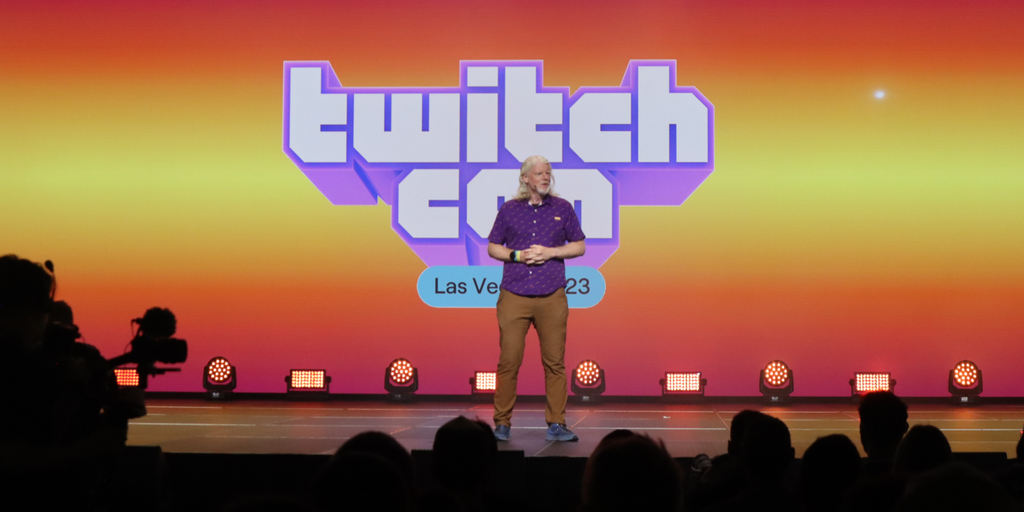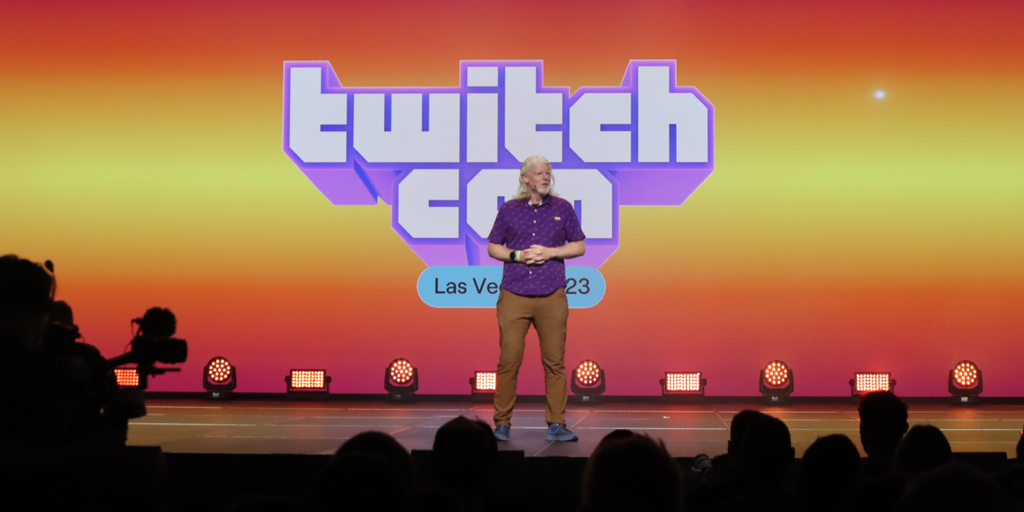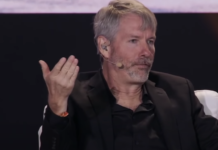
Twitch is rolling out changes to better position itself against livestreaming competitors like TikTok, Kick, and YouTube. It’s adding much-needed features to increase discoverability, as well as expanding its safety policies to include consequences for off-platform doxxing and swatting, Twitch CEO Dan Clancy announced at TwitchCon in Las Vegas Friday.
Over the years, Twitch has lost large creators to rival platforms that offer more money and perks—most recently, FaZe Clan’s Nicholas “NickMercs” Kolcheff announced that he’s leaving the platform for Kick in what is reportedly a $10 million deal. Twitch is also still facing the void left by xQc, who left Twitch for Kick back in June in a massive $100 million deal.
Twitch streamers will no longer be punished for simultaneously streaming to multiple platforms besides just Twitch as of today. Prior to this announcement, Twitch Partners and Affiliates were not allowed to stream to multiple platforms at the same time, like YouTube or Kick, and could lose their status with the platform as a result, along with various monetization benefits like subscriptions and a share of ad revenue.
Ads and ad revenue remain a contentious topic on platforms like Twitch and YouTube, however, and the jam-packed audience at TwitchCon’s opening ceremony made an audibly tired groan when Clancy brought up the topic. Pre-roll ads on Twitch, for one, are known to lead to massive viewer dropoff—and viewers hate seeing ads interrupt important live moments.
In response, Twitch plans to add a “Chat Countdown” feature that stream moderators can see, warning them that an automatic ad break is coming—with hopes that it will give creators the ability to better manage when ads cover their streams.
Twitch’s move to completely open up simulcasting to all streamers comes just a few months after Twitch said it would allow streamers to simulcast to mobile platforms like TikTok’s Live platform in addition to streaming on Twitch. On Twitter, many thanked Fortnite streamer Tyler “Ninja” Blevins for publicly raising the issue, stating that Twitch needed to “see the light.”
It’s worth noting, however, that many Twitch affiliates and streamers have been simultaneously streaming to multiple platforms for years, finding the potential added reach worth the risk. Now, they won’t have to hide it, at least.
Kick’s Head of Strategic Partnerships Andrew Santamaria responded to the simulcast news by promoting his rival platform.
“Kick creators ya’ll are changing the industry. Keep demanding to be treated like adults and professionals,” Santamaria said.
Kick creators ya’ll are changing the industry. Keep demanding to be treated like adults and professionals. If you haven’t started your simulcasting journey here at Kick to keep more of your money!? That’s the next step. More work to be had. https://t.co/Kk7WOLJO3p
— Santamaria (@Svntvmvriv) October 20, 2023
“If you haven’t started your simulcasting journey here at Kick to keep more of your money!? That’s the next step,” Santamaria said, referring to Kick’s higher creator revenue split.
Twitch appears to have taken notice that smaller creators need reach and flexibility as they fight to claim a share of the burgeoning $250 billion creator economy. Livestreamers often struggle to gain followers and views when they aren’t live, pushing some to stream for very long hours in order to make enough revenue to keep going.
“One of the big challenges in [the] streamer space is staying connected with our community on Twitch when they’re not live,” Clancy said onstage during TwitchCon’s opening ceremony.
The livestreaming site has also rolled out Twitch “Stories,” a clone feature to the time-sensitive vertical post feature that already exists on rival platforms like Facebook, Instagram, Snapchat, and TikTok. Twitch is also testing a new “Discovery Feed” feature, which aims to further expose viewers to new creators to create a TikTok-like “For You Page” filled with fresh content.
But Twitch has also maintained a relatively hands-off policy regarding what it calls “off-platform misconduct.” Notably, Twitch doesn’t take action to un-partner or demonetize creators who have been accused or charged with offenses like sexual assault or fraud (the platform’s ban policies have been historically opaque for streamers).
But Twitch may be beginning to recognize that what streamers and Twitch users do off-platform can, directly or indirectly, harm those on its platform too.
“Misconduct that takes place on or off Twitch can be extremely harmful,” Clancy said. “To further protect our streamers, we’re adding doxxing and swatting to the list of behaviors we enforce against when it occurs on Twitch.”
Twitch’s new policy that aims to better protect streamers who face doxxing or swatting takes effect immediately, Clancy added.
Notably, Twitch’s action against such behavior comes as YouTube faces controversy for its delayed response to creator “SSSniperwolf” doxxing the residence of a fellow YouTuber, Jacksfilms. Last week, Jacksfilms criticized YouTube, alleging that the platform had not done anything to reprimand SSSniperwolf. YouTube then responded Friday that it had demonetized SSSniperwolf’s channel, and added that such off-platform behavior “isn’t what we want on YT.”
Edited by Andrew Hayward








